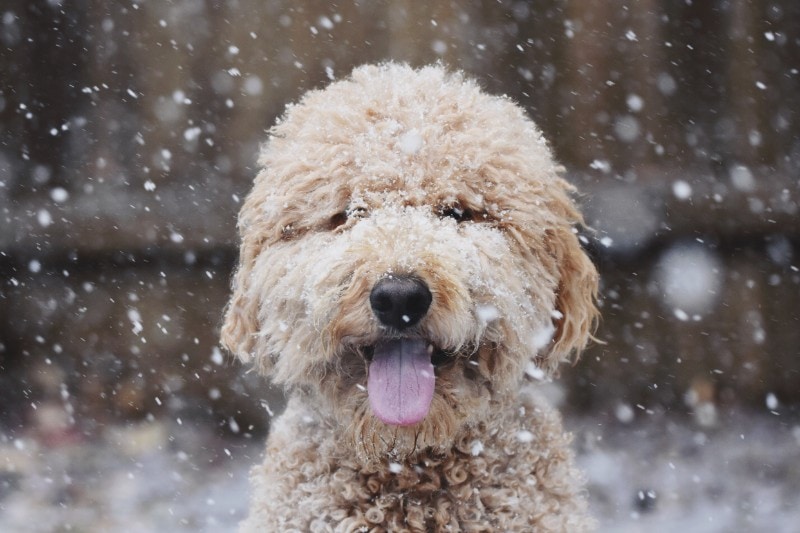Winter Pet Safety Precautions Can Really Save the Day

Each season delivers its own set of risks to animals. From parasites to allergies, heat stroke to poisoning, the calendar year is simply full of potential threats to your pet’s welfare. It’s easy to assume that winter pet safety involves basic regard for dangerous dips in temperature, but there is more to it than that.
Like anything else, the more pet owners know about the possible pitfalls awaiting their best friends, the better. Let’s get started!
And Now, the Weather
Without a doubt, the main concern for pet owners this time of year is whether it’s too cold for their pets. Many animals opt to stay indoors, but others must venture out when nature calls.
A general rule is that if it’s too chilly out for you, it most definitely is for your pet. However, larger, heavy-coated dog breeds enjoy the cold. Knowing what your pet can tolerate is important, but it’s down to you to draw the line. Please don’t allow them to remain outside in wet, damp, windy, or freezing temperatures. If your pet refuses to come inside, create a shelter with fresh water, blankets and food.
Hypothermia and frostbite are real threats to winter pet safety and can signal a true pet emergency.
Achy and Shivering
Young pets, seniors and those with compromised immune systems are considered more prone to the effects of the cold. As they have challenges regulating internal temperature these animals need extra help. Provide a warm, supportive bed that is free from cold drafts, dampness, and slippery floors.
A Tenet of Winter Pet Safety
Another huge risk to pets during winter is the widespread use of antifreeze in our vehicles. Highly toxic to pets, antifreeze, or ethylene glycol, has a uniquely sweet flavor and odor that is appealing to many pets. If you see any leaks or spills, prohibit your pet from having a taste and clean up promptly. When out for walks with your dog inhibit them from licking up puddles.
Securely storing the product is critical, or be sure to purchase the safer version, propylene glycol.
Ice and Ice Melt
Every winter pets can suffer accidental injury from slipping on the ice. Broken bones or soft-tissue traumas are the most common incidents regarding the ice. Keep your pet on-leash so you can mitigate possible slips or falls, avoid icy spots, and invest in a solid pair of winter boots to increase grip.
Boots can also help enormously toward preventing dry, cracked paw pads from exposure to ice melt. Calcium-based deicers can also cause problems if an animal licks their paws. Vomiting and diarrhea are common side effects, but in high doses pets face life-threatening symptoms. If your pet cannot tolerate boots, be sure to wash and dry their feet before the self-groom.
Other Elements
Whether feral, stray, or indoor-outdoor, cats tend to find warmth and security beneath car hoods. Being aware of this goes a long way, but it’s vital to pound on the door or hood before turning the key in the ignition.
